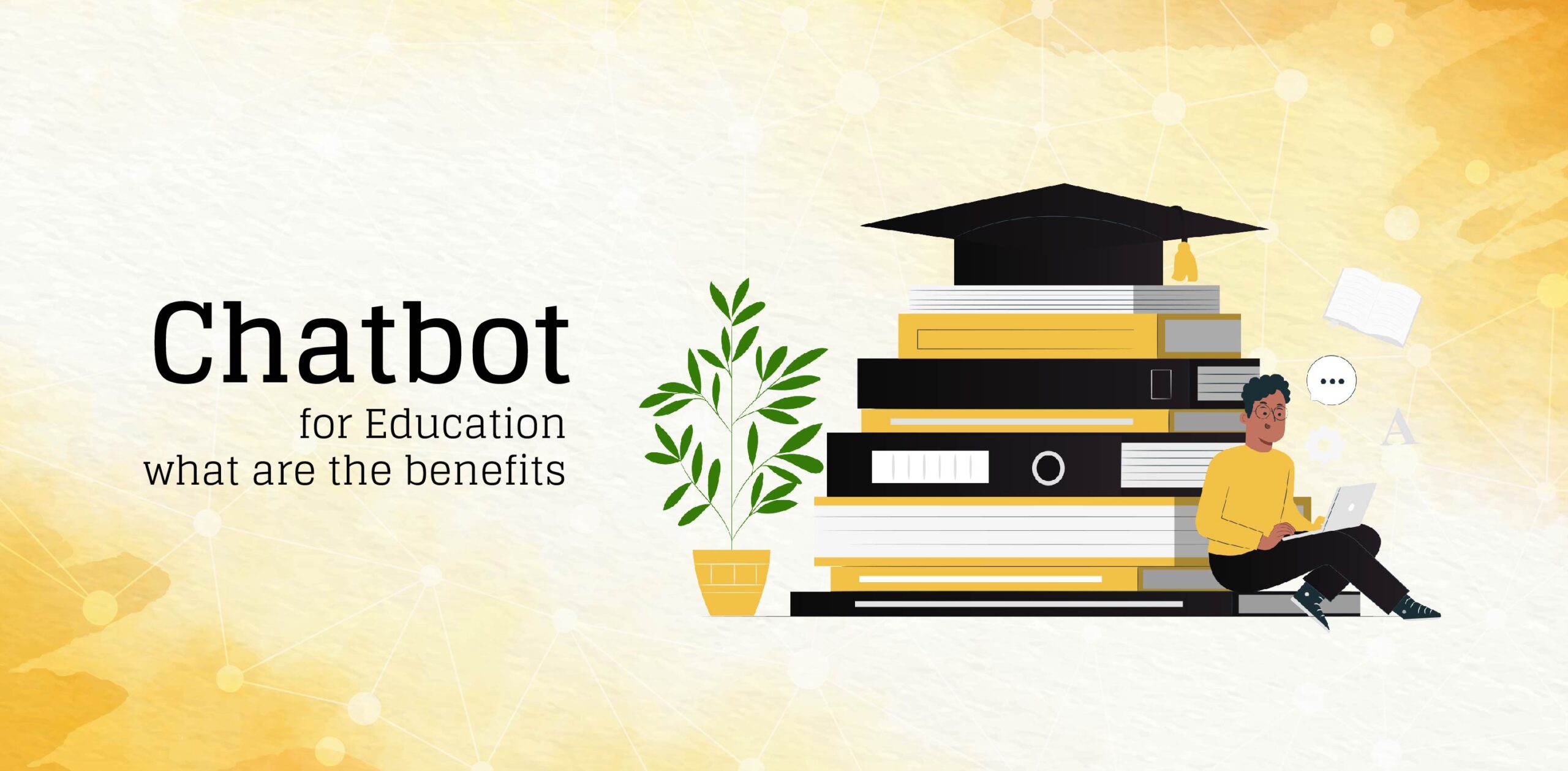In today’s fast-paced digital world, technology has revolutionized every aspect of our lives, including education. One such technological advancement is chatbots for education. These AI-driven conversational agents are transforming the way educational institutions operate and interact with students. By leveraging chatbots for education, schools, colleges, and universities can streamline processes, enhance student engagement, and provide instant support. This article delves into the myriad benefits of using chatbots in education and how they are reshaping the educational landscape.
What is Chatbot Automation and How Does It Work?
Chatbot automation involves the use of artificial intelligence (AI) to create software programs that can simulate conversations with users. These chatbots can be programmed to perform a variety of tasks, such as answering frequently asked questions, providing information, and even guiding users through complex processes. The core technology behind chatbot automation includes natural language processing (NLP), machine learning, and AI algorithms.
The working of a chatbot for education begins with the chatbot being integrated into an educational institution’s digital infrastructure, such as websites, learning management systems, or mobile apps. When a student or user interacts with the chatbot, the NLP component processes the input to understand the query. The chatbot then uses its pre-defined algorithms and data to generate an appropriate response. Over time, these chatbots can learn from interactions, improving their accuracy and effectiveness.
Why Use Chatbots in Education?
Applications of Chatbots in Education
The application of chatbots in education is vast and varied. They can assist with administrative tasks, provide academic support, facilitate communication, and enhance learning experiences. For instance, a higher education chatbot can help students navigate course catalogs, register for classes, and even track academic progress. This reduces the workload on administrative staff and ensures that students receive timely and accurate information.
Automated Content Application
One of the significant advantages of chatbots in education is automated content application. Chatbots can deliver educational content directly to students, such as lecture notes, assignments, and quizzes. This saves educators time and ensures that students have easy access to the necessary resources. For instance, if a student needs lecture notes from a previous class, they can ask the chatbot, which will instantly provide the required materials.
Digital Service
Chatbots offer digital services that are available 24/7, providing students with immediate assistance. Whether it’s answering questions about campus facilities, financial aid, or technical support, a chatbot for educational institutions ensures that students receive timely and accurate information. This round-the-clock availability is particularly beneficial for international students in different time zones who need support outside regular office hours.
Search Automation
Search automation is another key feature of educational chatbots. Students can quickly find information by interacting with the chatbot, rather than navigating through complex websites or portals. This enhances the user experience and makes it easier for students to find the necessary information. For example, if students need information about a specific course, they can ask the chatbot, which will instantly provide detailed information.
How Chatbots Benefit Educational Institutions
Chatbots Provide Our Students Information 24/7
One of the most significant benefits of chatbots for educational institutions is their ability to provide information 24/7. This constant availability ensures that students can get the support they need anytime, enhancing their overall experience. Whether it’s a simple query about campus facilities or a complex question about course requirements, chatbots can provide accurate and timely responses, ensuring that students always have access to the information they need.
Chatbots on Campus
Implementing chatbots on campus can significantly improve the efficiency of various administrative processes. From handling student inquiries to managing campus tours, chatbots streamline operations, allowing staff to focus on more critical tasks. For instance, chatbots can handle routine inquiries about campus facilities, allowing staff to focus on more complex tasks that require human intervention. This improves efficiency and ensures that students receive timely and accurate information.
Humanizing Chatbots to Improve the Student Experience
While AI powers chatbots, they can be designed to mimic human interactions, making the user experience more personal and engaging. Humanizing chatbots helps build rapport with students, which can lead to increased satisfaction and trust. For instance, chatbots can use natural language processing to understand and respond to queries conversationally, making interactions feel more natural and less robotic.
Simple Chatbots
Simple chatbots are designed to handle basic tasks and answer common questions. These chatbots are easy to implement and can be a great starting point for educational institutions looking to incorporate AI technology. For instance, simple chatbots can answer frequently asked questions about admissions, course requirements, and campus facilities. This saves administrative staff time and ensures that students receive quick and accurate responses to their queries.
Intelligent Chatbots
Intelligent chatbots, on the other hand, are equipped with advanced AI capabilities. They can handle more complex queries, provide personalized responses, and predict student needs based on previous interactions. For instance, intelligent chatbots can analyze student data to provide customized study plans, recommend resources, and offer academic support. This advanced functionality makes intelligent chatbots a valuable tool for enhancing the learning experience and improving student outcomes.
Student FAQs and Ongoing Support
Chatbots can be programmed to answer frequently asked questions, providing students with quick and accurate information. This ongoing support helps reduce administrative staff’s workload and ensures that students always have access to the information they need. For instance, chatbots can handle routine inquiries about course schedules, exam dates, and campus facilities, freeing staff to focus on more complex tasks.
Student Engagement
Chatbots can significantly boost student engagement by offering interactive and engaging conversations. They can facilitate discussions, conduct surveys, and even provide personalized study tips, making learning more enjoyable and effective. For instance, chatbots can engage students in interactive quizzes, provide feedback on their performance, and recommend resources based on their individual needs. This interactive learning approach helps keep students motivated and engaged in their studies.
AI Personal Assistance in Student Learning and Onboarding
AI-powered chatbots can assist students, guiding them through their learning journey. From onboarding new students to offering personalized study plans, chatbots can provide tailored support to enhance student success. For instance, chatbots can provide information about campus facilities, course requirements, and academic resources, helping new students settle in and navigate their new environment.
AI Assistance for Teachers
Teachers can also benefit from AI chatbots in higher education. These chatbots can assist with grading assignments, providing feedback, and even offering suggestions for lesson plans. By automating these tasks, teachers can focus on more critical aspects of teaching, such as mentoring students and developing innovative teaching methods.
Administration Tasks
Chatbots can significantly streamline administrative tasks within educational institutions. From managing enrollment processes to handling student inquiries, chatbots can automate routine tasks, freeing staff to focus on more complex responsibilities. This improves efficiency and ensures that administrative processes are more accurate and consistent.
How Can Codifica Chatbot Help?
Codifica offers a comprehensive chatbot solution tailored specifically for educational institutions. By leveraging the latest AI technologies, Codifica’s chatbot can enhance student engagement, streamline administrative processes, and provide personalized support. Here’s how Codifica Chatbot can help educational institutions:
Personalized Onboarding
Codifica Chatbot can guide new students through onboarding, providing them with information about campus facilities, course requirements, and academic resources. This personalized onboarding helps new students settle in quickly and ensures they have all the information they need to start their educational journey.
Academic Support
Codifica Chatbot can provide personalized academic support by analyzing student performance data and recommending specific resources, study tips, and practice exercises. This customized approach helps students stay on track and improve their academic outcomes.
Administrative Automation
Codifica Chatbot can automate routine administrative tasks, such as handling student inquiries, scheduling appointments, and sending reminders about important deadlines. This automation reduces the workload of administrative staff and ensures that students receive timely and accurate information.
24/7 Availability
Codifica Chatbot is available 24/7, providing students with immediate assistance whenever they need it. This constant availability ensures that students can get the support they need anytime, enhancing their overall experience.
Integration with Existing Systems
Codifica Chatbot can be integrated with various data sources and systems within the educational institution, ensuring that it can access up-to-date information and provide accurate responses. This integration makes Codifica Chatbot a valuable resource for both students and staff.
FAQs
What is the best AI chatbot for education?
The best AI chatbot for education depends on the specific needs of the educational institution. However, Codifica Chatbot stands out due to its advanced AI capabilities, personalized support, and seamless integration with existing systems.
Can I use a chatbot for academic writing?
While chatbots can provide valuable assistance with research and organization, they are not designed to write academic papers. However, they can help students with writing tips, resources, and feedback on their work.
How can chatbots be used in education?
Chatbots can be used in education for various purposes, such as providing academic support, handling administrative tasks, facilitating communication, and enhancing student engagement. They can also personalize learning experiences and provide 24/7 assistance to students.
How do you use a chatbot to study?
Students can use chatbots to study by asking for study tips, resources, and practice exercises. Chatbots can also provide personalized study plans and feedback on performance, helping students stay organized and improve their academic outcomes.
How do you use ChatGPT to learn anything quickly?
ChatGPT can be used to learn anything by asking specific questions and seeking detailed explanations. It can provide valuable insights, resources, and study tips, making it easier for students to understand complex concepts and improve their knowledge.
Does the number limit chatbots?
Chatbots are not limited by number and can handle multiple interactions simultaneously. This scalability makes them ideal for educational institutions with large student populations.
Where can a chatbot be installed?
Chatbots can be installed on various platforms, such as websites, mobile apps, and learning management systems. This flexibility ensures students can access the chatbot from multiple devices and locations.
When can I launch a chatbot?
You can launch a chatbot anytime, depending on your institution’s needs and readiness. However, to provide the best user experience, it is important to ensure that the chatbot is configured correctly and tested before launching.
What if I don’t have a website?
If you don’t have a website, you can still implement a chatbot on other platforms, such as mobile apps or social media. This ensures that students can access the chatbot from various devices and locations.
How do I measure how successfully my chatbot automation is working?
You can measure the success of your chatbot automation by tracking key performance indicators (KPIs), such as user engagement, response accuracy, and user satisfaction. Analyzing these metrics can help you identify areas for improvement and ensure that your chatbot is providing the best possible support.
Do I have to know a lot about computer coding?
You do not need extensive knowledge of computer coding to implement a chatbot. Many chatbot platforms, like Codifica, offer user-friendly interfaces and support to help you configure and manage your chatbot easily.
Conclusion
Chatbots for education offer many benefits, from enhancing student engagement to streamlining administrative tasks. By leveraging AI technologies, educational institutions can provide personalized support, improve efficiency, and create a more interactive learning environment. Whether it’s a simple chatbot answering routine inquiries or an intelligent chatbot offering personalized academic support, the impact of chatbots in education is profound. As technology continues to evolve, the adoption of chatbots for education will undoubtedly become more widespread, reshaping the future of learning.

